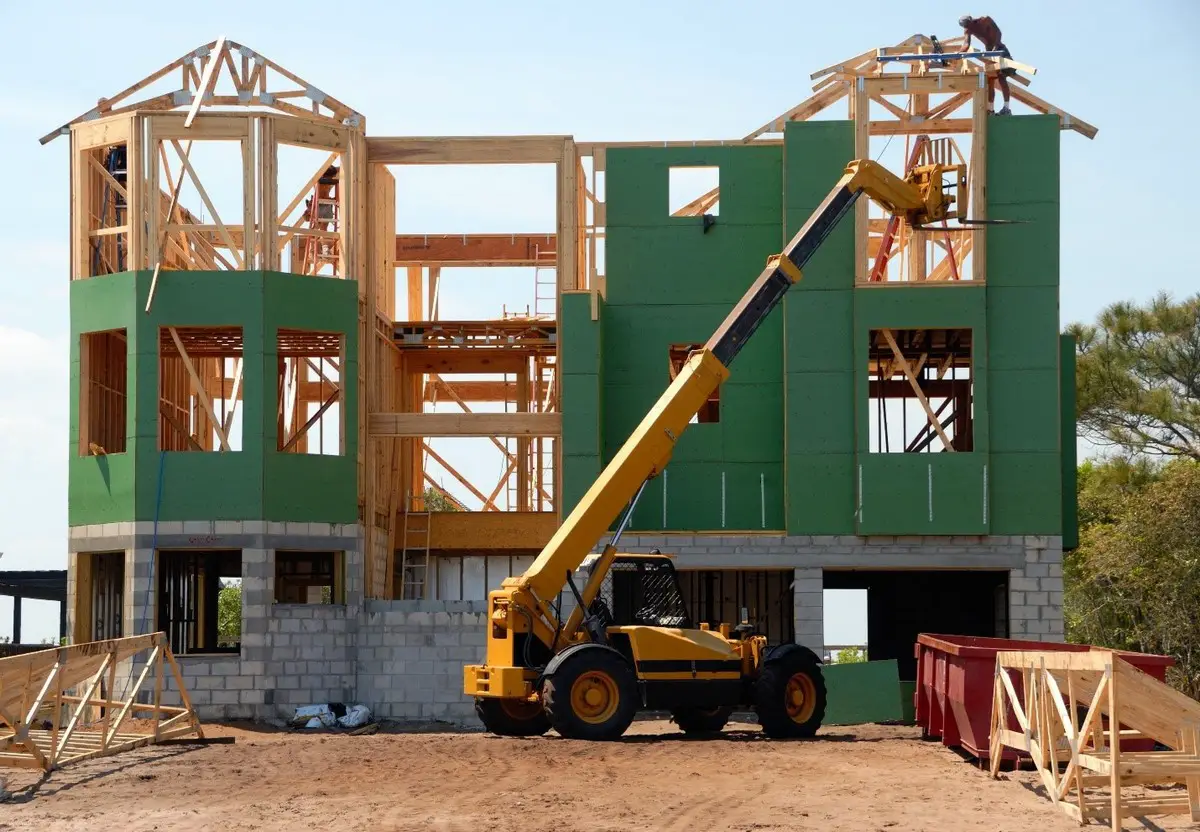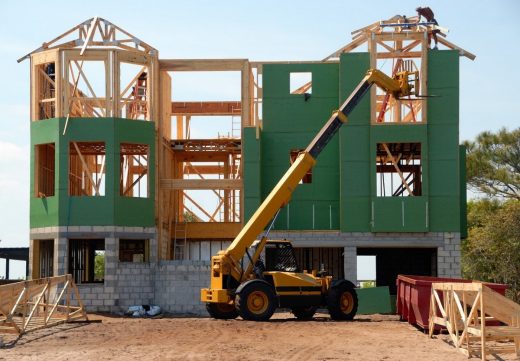Preparing for home construction advice, What you need to know tips, Online permanent property building guide
Preparing for Home Construction – What You Need to Know
17 Sep 2021
Getting your own house constructed for the first time is an exciting experience. The possibilities seem endless, and you can finally get the kind of design you’ve wanted for ages! However, house construction is also a complex and lengthy process that you need to be fully prepared for before entering it.
The construction itself will be gruelling, even if you aren’t constructing the house yourself, but the planning before that will ascertain how successfully you’ll be able to get a house you’re happy with.
Steps to Take When Preparing for Home Construction
The planning process varies for everyone depending on their needs and preferences, but the following are the common factors that everyone needs to consider.
1. Conduct Research
Your first step should always be to conduct research, especially since the process will take up a significant portion of your resources. Look into the neighbourhood you’re interested in and get in touch with realtors.
Find out the average house construction rate for the house size you want. Look up basic regulations in the area and a list of architects you will choose from. Such research will give you a realistic idea of what to expect and build awareness about the required costs, time, and effort.
2. Purchase Land
This step will have multiple steps within it and will take both time and money. You will need to get a realtor on board and explain your requirements. The land needs to meet basic requirements, so ensure that you get an expert opinion for the purchase.
When purchasing farmland, it’s crucial to consider the soil quality, water availability, and access to markets. You should also evaluate the land’s potential for appreciation and assess any zoning laws that may impact its use. Before making a decision, see properties available and consult with agricultural experts to ensure the land meets your farming needs. This step becomes especially important if you plan to engage in specific types of farming, such as organic produce or livestock farming, as each has unique requirements for success.
Although the purchase process will not be lengthy, your consideration may take time, primarily to ensure you do not face any problems later.
3. Hire an Architect
Your next step needs to be hiring a competent architect for the job who can handle the project you want to move forward with. While you need to ensure you are working with a talented professional, you also need to select a person you can communicate with.
They will be designing every part of the house, and they will build the structure based on these designs, so making the right choice is critical.
4. Start Budgeting
Once your architect completes the first draft of the house, they will give you an estimate of the total cost it will take to build it. While you can still request changes to the design to alter the overall cost, you will get an idea about the minimum you will need to pay for the process.
Use this knowledge and start budgeting. You need a proper payment plan that outlines material purchase, loan repayment, vendor payments, etc., to ensure the process goes smoothly.
5. Apply for a Loan
You will need to apply for a loan to cover the initial costs during the planning and, eventually, construction. For those of you who want to work with quick loans to keep paying as you incur the costs, Nifty Loans is a good option since they cater to this category specifically.
Otherwise, you can take the regular banking channels but remain mindful of the interest you will be paying on the vast sum you’re borrowing. Your budgeting should be solid, and plan your construction and future expenses, keeping the liability in mind.
6. Finalise Construction Plan
After you have applied for and gotten the final design plan from your architect, you’ll need to get it approved by the relevant regulatory authorities.
Your architect will generally know about the area regulations and ensure the design doesn’t violate them, but authorities need to review and approve the designs before you can move forward. If they raise objections, the architect must adjust the design to ensure everything meets their specifications.
7. Hire a Structural Engineer
You will also need to hire a structural engineer to oversee the house’s strength the architect has designed. While both fundamentally have the same job, architects focus more on appearance while structural engineers prioritise structural strength and sturdiness.
You’ll need the latter’s opinion and minor adjustments to ensure your final plan not only looks good but is also durable and sturdy.
Ideally, cover this step before getting the regulatory approvals to ensure regulatory authorities cannot question any part of your plan later.
8. Hire a Contractor
With all the approvals in place, you need to hire a contractor willing to construct your house within the family budget you have set aside for the construction process. Some of you plan to construct your house yourself so that you can skip this part.
For those working with a contractor, conduct thorough research and consult your architect, engineer, and realtor before finalising your choice. Even when you have a great design, the wrong contractor can mess up the entire process.
9. Implement Buying Plan for Construction Material
House construction takes months, and it is better to buy material for each phase rather than getting everything all at once. If your contractor is experienced and has a strong network, they will also connect you to the right vendors who make affordable premium materials.
Make sure you continue to budget all purchases and save where you can. While material estimates are usually close to the actual amount, you may have to buy more, and you will need the extra money you have saved for these contingencies.
10. Get Started
Once you have the design, the approvals, the contractor, the material, and the land, you’re ready to get started. It will be an intense few months, so prepare yourself and celebrate the completion of each phase.
Keep track of the progress and ensure everything is happening according to plan.
Preparing for home construction – Wrapping Up
We hope you enjoyed reading this article and found it informative. House construction is a process that requires time, effort, and money, and you will need to be fully prepared before you get started. The points mentioned above will provide you with essential guidance, but you might need more prep if your house has unique features.
So long as you are aware and take the necessary steps, you will be ready for the main project.
Comments on this guide to preparing for home construction, what you need to knowarticle are welcome.
Construction
Construction Posts
Reasons To Consider Custom Home Construction
5 reasons to use steel in residential construction
Buildings
Residential Architecture
Comments / photos for the Preparing for home construction, what you need to know advice page welcome






